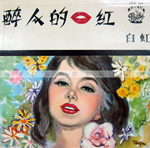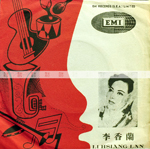In 1949, a whole group of multi-talented stars moved from Shanghai to Hong Kong. Mando pop rose to prominence, rivalling the presence of Canto opera music and Canto pop in a short period of time. The young Wong Jum-sum frequented radio stations and recording studios with his harmonica band members, in that process encountered in person many of these Mando pop stars and maestros, including illustrious names like Li Xian-lan, Bai Guang, Yao li and Yao Min. He also regularly collaborated with Filipino musicians who once illuminated the nightclubs of Shanghai.
These stars and musicians created a reservoir of Mando pop songs in the 1950s. The latter formed an inexhaustible treasure trove for radio music program presenters of the time.

Film songs
Mando pop made its presence felt in radio broadcast, nightclub performances and most importantly, in films. In the second half of the 1950s, the two big Mando film studios began to produce a vast number of song and dance films, capturing the glamour of the city and the allure of modernity on screen. The soundtracks of these immensely popular films became the soundtracks of life in this rapidly burgeoning city.
Mando pop made its presence felt in radio broadcast, nightclub performances and most importantly, in films. In the second half of the 1950s, the two big Mando film studios began to produce a vast number of song and dance films, capturing the glamour of the city and the allure of modernity on screen. The soundtracks of these immensely popular films became the soundtracks of life in this rapidly burgeoning city.
Loading the player...

15 / 44












































